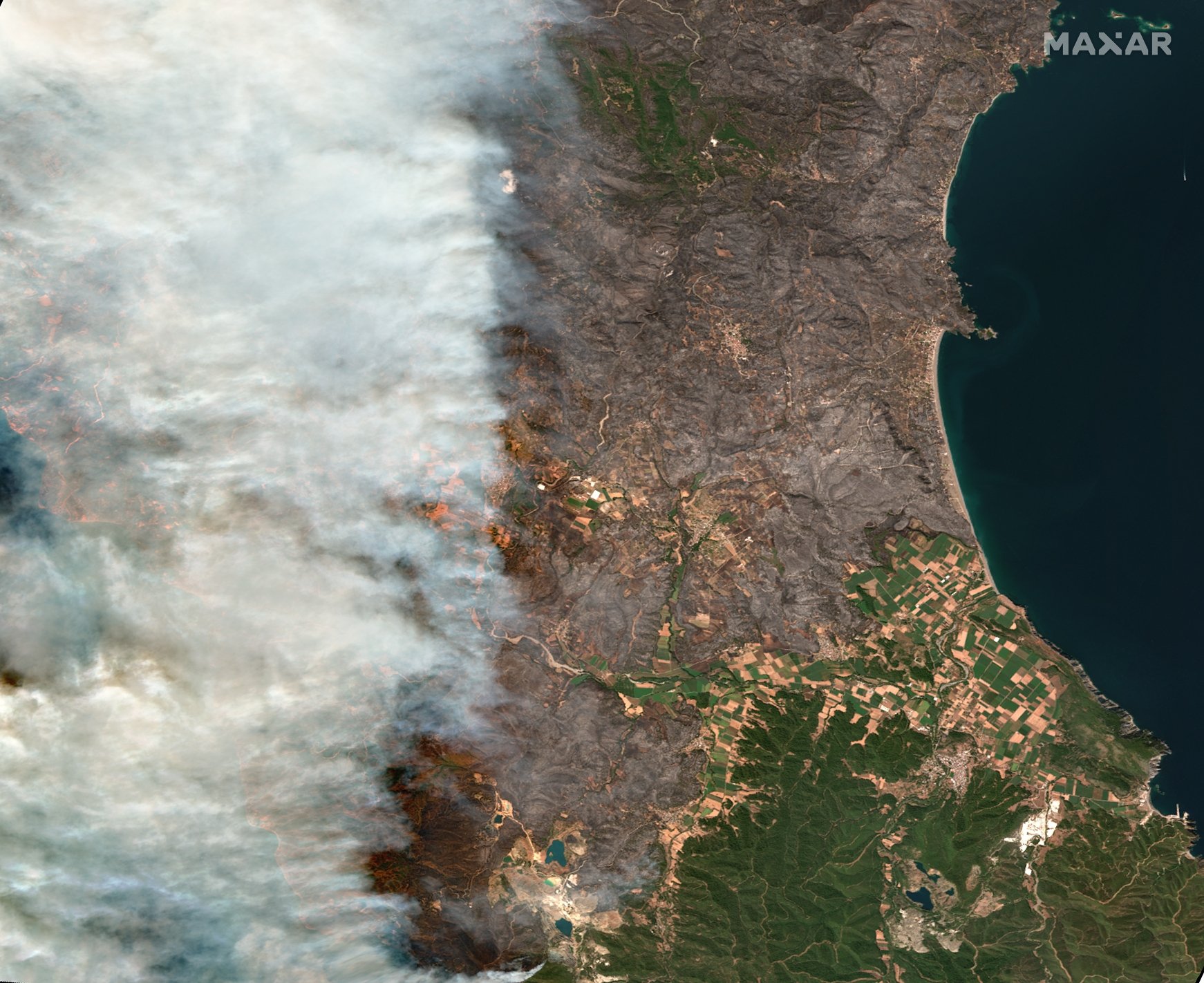© Turkuvaz Haberleşme ve Yayıncılık 2024
Firefighters and residents battled a massive forest fire on Greece’s second-largest island for a seventh day Monday, fighting to save what they can from flames that have decimated vast tracts of pristine forest, destroyed homes and businesses and sent thousands fleeing.
The smoke and ash from the fire on Evia, a rugged island of forests and coves almost touching the Greek mainland, blocked out the sun, turning the sky orange as the blaze rampaged across the northern part of the island.
Evia’s fire is the most severe of dozens that have broken out across Greece in the past week, after the country was baked by its worst heat wave in three decades which sent temperatures soaring to 45 degrees Celsius (113 Fahrenheit) for days.

The heat, coming amid what has already been a particularly hot summer, has turned Greece’s forests, including large areas of easily flammable pine trees, into bone-dry tinderboxes. Other big fires have been burning forests and farmland in the southern Greek region of the Peloponnese, while a major blaze that burned through homes, businesses and forests on the northern fringes of Athens was on the wane.
The wildfires have stretched Greece’s firefighting capabilities to the limit, and the government has appealed for help from abroad. More than 20 countries in Europe and the Mideast have responded, sending planes, helicopters, vehicles and manpower. But many residents and local officials have complained of a lack of firefighters, and some have taken to calling in to Greek television networks to appeal for help, particularly from water-dropping planes and helicopters.
Greek firefighters battle severe forest fire on 2nd-largest island for 7 days as flames decimate vast tracts of pristine forest, destroy homeshttps://t.co/d3CWbf7oUP pic.twitter.com/E3In4m3K44
— DAILY SABAH (@DailySabah) August 9, 2021
"We were completely forsaken. There were no fire brigades, there were no vehicles, nothing!” said David Angelou, who had been on Evia in the seaside village of Pefki and left the island by ferry to the mainland harbor of Arkitsa Sunday night. "You could feel the enormous heat, there was also a lot of smoke. You could see the sun, a red ball, and then, nothing else around,” he said.
Greece’s Civil Protection chief, Nikos Hardalias, has stressed that firefighters have been doing everything they can. On Sunday, a small firefighting plane crashed on the western Greek island of Zakinthos while fighting a smaller fire there.
Massive fires have also raged for more than 10 days in neighboring Turkey, where firefighters were still trying to extinguish blazes in five locations in the coastal province of Mugla, in the country’s southwest.
"The situation is improving,” Agriculture and Forestry Minister Bekir Pakdemirli said late on Sunday. "It is too soon to say the fires are under control, but we are reaching that point.”
On Evia overnight, residents and firefighters managed to save most of the village of Pefki, on the island’s northern tip, where fast-moving flames entered the outskirts Saturday evening and destroyed at least one home.
A ferry that had been sent to Pefki to potentially evacuate people by sea turned into a temporary shelter for those residents of that and other nearby villages who didn’t have the means to flee toward north Evia’s main harbor of Aidipsos, or who wanted to remain near their homes so they could return and check on them whenever it was safe to do so.
Monday morning found dozens of local residents, many with their pets, sleeping on chairs on the ferry, or on the lounge chairs of Pefki’s pebble beach. Most of the surrounding villages had been left without power and running water due to the fire.
